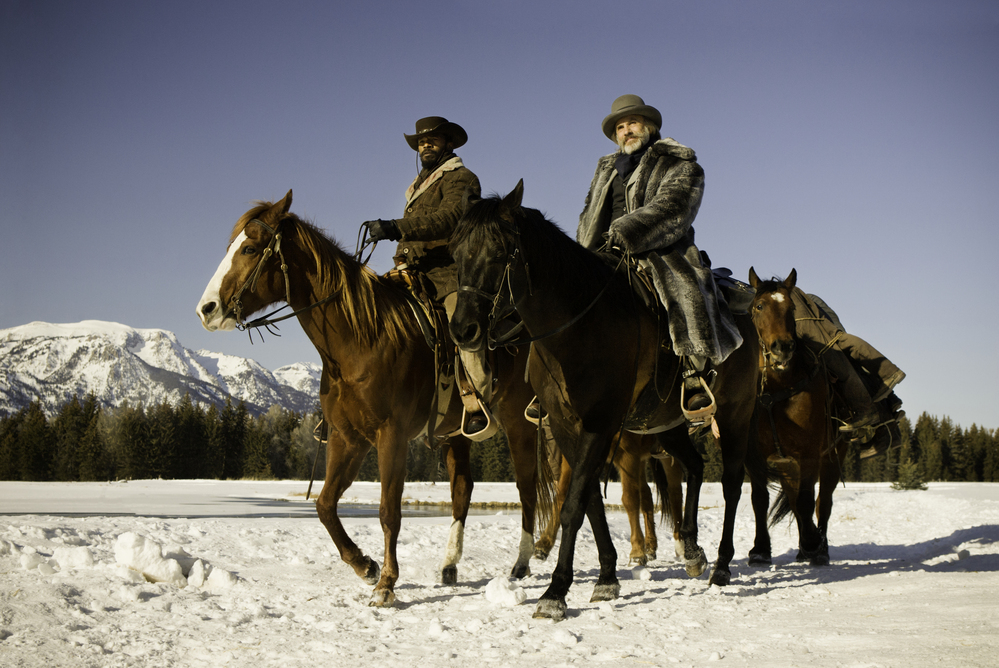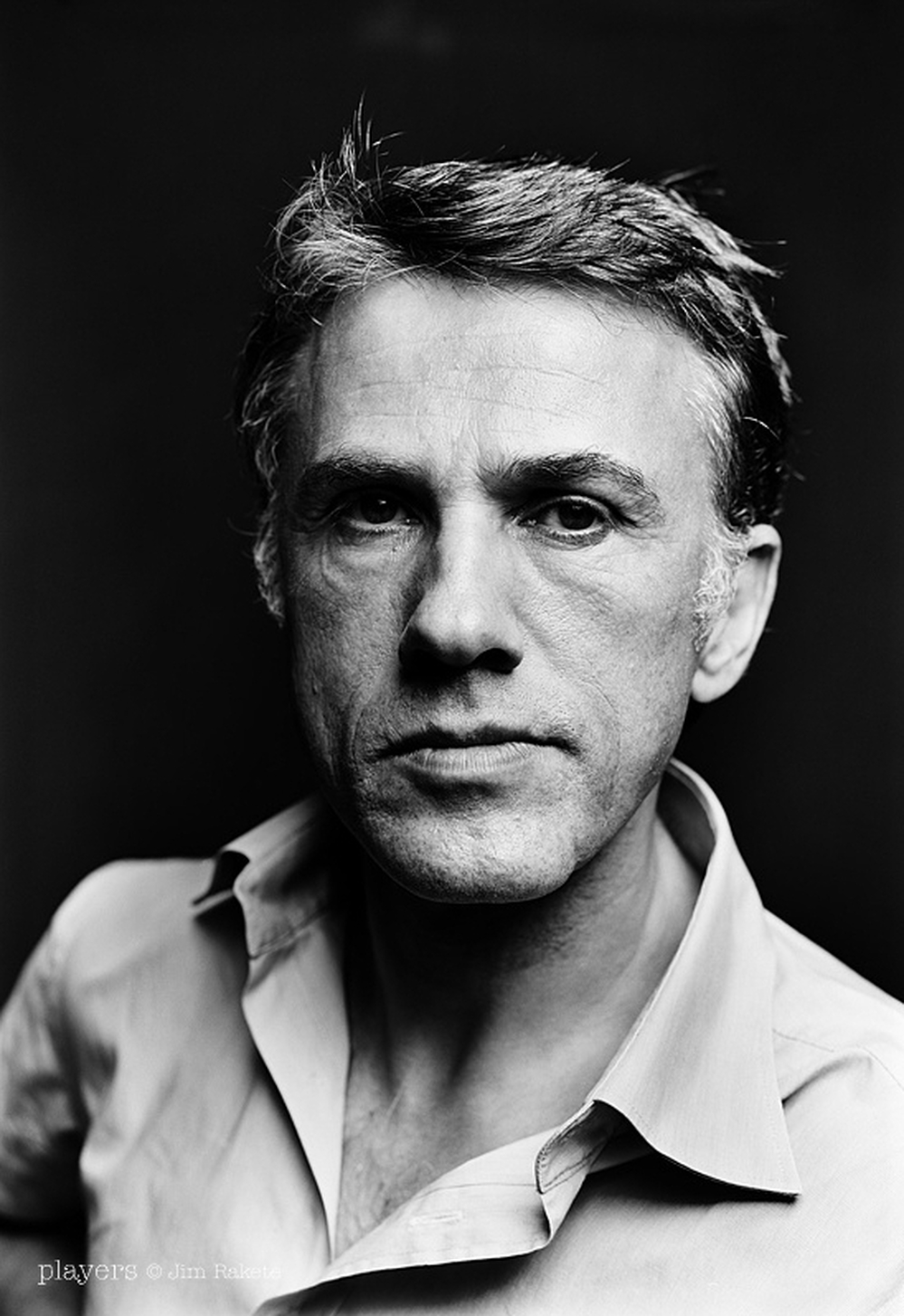Christoph Waltz (right, with Jamie Foxx) stars in Quentin Tarantino's new film Django Unchained.
Andrew Cooper/The Weinstein Company Christoph Waltz (right, with Jamie Foxx) stars in Quentin Tarantino's new film Django Unchained.Andrew Cooper/The Weinstein Company
Christoph Waltz (right, with Jamie Foxx) stars in Quentin Tarantino's new film Django Unchained.Andrew Cooper/The Weinstein Company When Christoph Waltz auditioned for the role of SS officer Hans Landa in Quentin Tarantino's 2009 film Inglourious Basterds, he read the passage assigned for the audition, then kept going until he had gone through the entire role as Tarantino himself filled in for the other parts.
"It was partly hilarious, partly just fabulous, partly scary," Waltz tells Fresh Air's Terry Gross. "And we arrived at the end and then we parted and I said to the casting director, 'If this should have been it, it was definitely worth it,' and, well, then they called me back."
Waltz wound up winning the Academy Award for Best Supporting Actor the following year for his portrayal of Landa, and, at age 53, officially breaking into the Hollywood scene. The success of Inglourious Basterds changed his life, he says, and working with Tarantino was a revelation that renewed his faith in his craft.
Now he's starring — along with Jamie Foxx, Leonardo DiCaprio and Kerry Washington — in Tarantino's latest, Django Unchained. In this film, he plays a German bounty hunter who teams up with a former slave against a plantation owner.
Growing up as part of the fourth generation of an Austrian theatrical clan, Waltz never intended to enter the family business.
Waltz won an Academy Award for Best Supporting Actor in 2009 for his performance in Inglourious Basterds.
The Weinstein Company Waltz won an Academy Award for Best Supporting Actor in 2009 for his performance in Inglourious Basterds.The Weinstein Company
Waltz won an Academy Award for Best Supporting Actor in 2009 for his performance in Inglourious Basterds.The Weinstein Company "I didn't want to have anything to do with it," he says, "because that's all I heard when I grew up. It was tedious. It brought tears to our eyes, my sibling and mine, because it was [at] dinner, breakfast, lunch ... the only topic of conversation was of theater."
He says it was only "out of a sheer lack of imagination" that he found his way to acting. That said, he loved old American films from an early age — the Marx brothers, Buster Keaton — and he would go to as many as three movies a week. Eventually, this led him to New York, where he studied for a time under Stella Adler, the actress and theater teacher. She had a lasting influence on Waltz.
"There were these little, little remarks that still are in my mind," he says about the things he learned from her. "And one of the most valuable things that she said to the class and so also to me — but it stuck to me for the past 35 years — is, 'Don't love yourself in art, love the art within you.' And that's something that never left me: that the play in front of you is more interesting than all the neurotic little maneuvers that you play within yourself."
On whether Tarantino wrote the part of Dr. King Schultz in Django Unchained specifically for him
"I sat at his kitchen table — literally at his kitchen table — with pages in front of me that were still warm from the printer. It sounds like a figure of speech, but they were literally still warm from the printer, and I read it in portions because, you know, I didn't sit there all the time and hear the typewriter click away in the room next door, but in like two, three weeks he invited me up to his house again and put another ... warm stack of paper in front of me and then eyed me and watched me reading and sort of reading my face and my reactions to it, so ... yes, I'm proud to say — and I hope it's not being presumptuous — he did write it for me."
About understanding the poetry, rhythm and humor of the language in Tarantino's scripts
"It's something about Quentin's writing. ... It's something about these specific words. Words are not all the same, and the combination of words. ... [I]t's an actor's dream to try to wrap his mind around these sentences. ... They jump at you because [of] the phrasing. It's not just the words in themselves, it's the rhythm that [Quentin] creates. You know, you might have heard very clearly, which is a good example, is "that of the rat." ... [I]f you have these two words, the pause between "that ... of the rat" is unavoidable, so you don't need to actually write anything, or take any notes. You just need to hand yourself over to the flow."
No comments:
Post a Comment